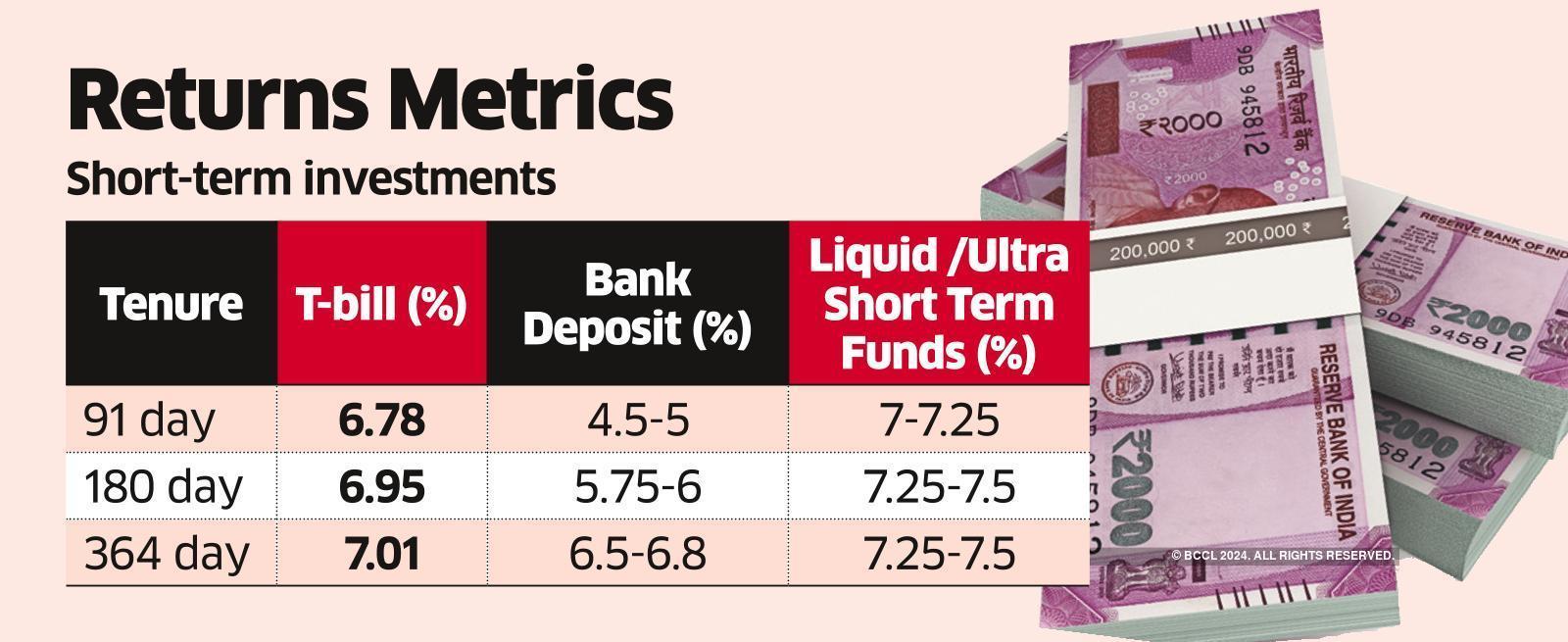“Investors waiting for a correction in the market, looking to stagger investments in equities, or looking to park money for short-term goals can use ultra short-term funds and T-bills, where rates are attractive,” said Nirav Karkera, head of research, Fisdom. Investment advisors said Treasury bills and ultra short-term funds could earn much more than bank deposits of similar tenure with better liquidity.
Currently, a 91-day deposit of HDFC Bank yields 4.5%, while it increases to 5.75% for 181 days and 6.6% for a year. Compared to this, T-bills of similar tenure yield 6.78%, 6.95% and 7.01%, respectively. Ultra short-term funds could fetch investors anywhere between 7.25% and 7.5% return.

“Investors can earn 40-200 basis points more than bank deposits of similar tenure by investing in a mix of T-bills and ultra short-term funds,” says Vikram Dalal, managing director, Synergee Capital.
Analysts said a benefit of investing in T-Bills and ultra short-term funds is that there is no tax deduction at source (TDS) as compared to bank deposits. In bank deposits, tax is deducted if interest amount exceeds ₹40,000 in a financial year. T-bills are Reserve Bank of India-issued promissory notes with a repayment guarantee and are categorised as short-term debt instruments.
Ultra short-term funds invest in a combination of debt instruments including Treasury bills, certificate of deposits, commercial papers and corporate bonds. Generally, these funds have a residual maturity ranging from 3 months to 1 year.








